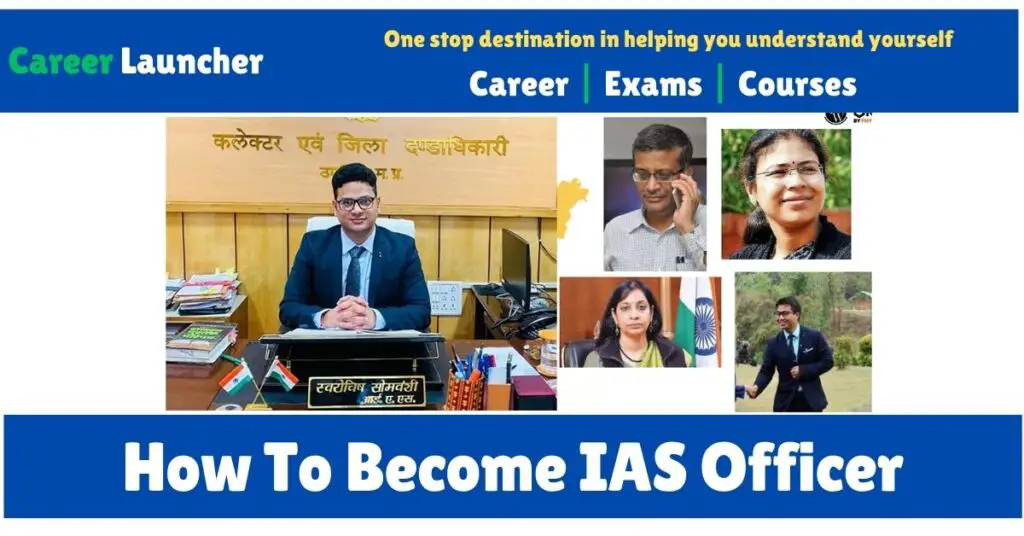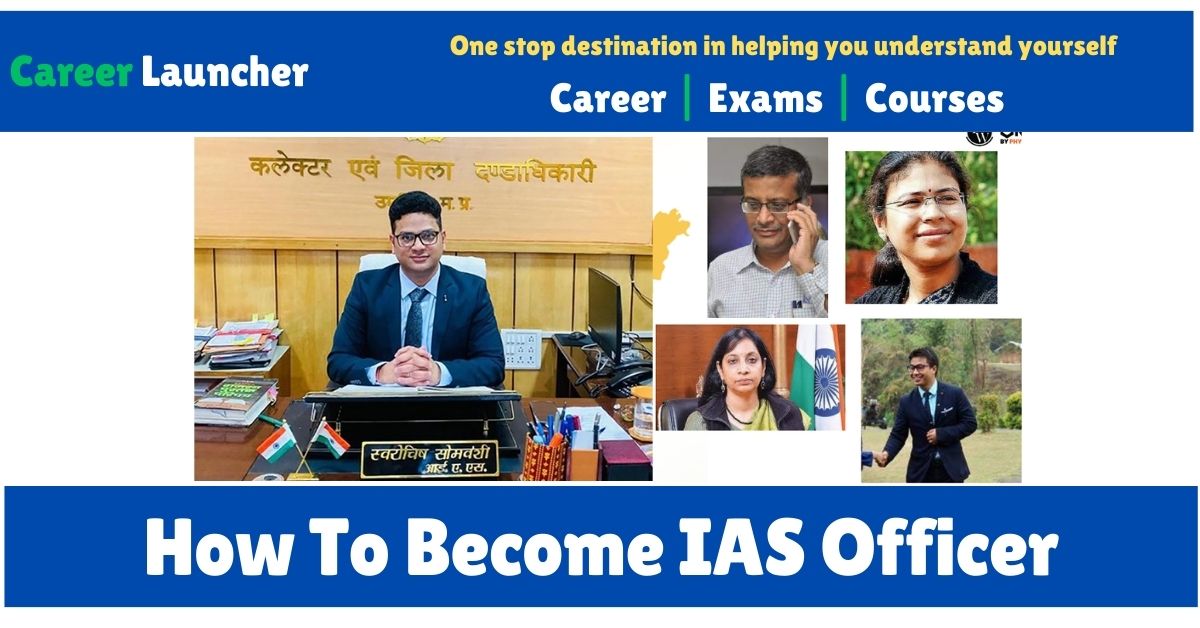Are you passionate about serving the nation, making a meaningful impact, and bringing about positive change in society? If yes, then becoming an Indian Administrative Service (IAS) officer might be the perfect career path for you. The IAS is one of the most prestigious and sought-after civil services in India, offering not just a job but a platform to contribute significantly to the nation’s governance and development.
What Is IAS – Indian Administrative Service
The Indian Administrative Service (IAS) is the premier administrative civil service of the Government of India. IAS officers hold key positions in the administration and are responsible for implementing government policies, ensuring law and order, and fostering development at various levels.
The IAS officer is considered the highest-ranking post in civil services, and only the most competitive candidates are selected for it. The IAS post is given preference for any prestigious position, whether it is the secretary of the central government or of the district. The District Magistrate, an IAS officer, holds the highest authority in the district. Whether it pertains to matters of security or the role of Defense Secretary at the national level, experienced IAS officers are consistently appointed to these positions.
Becoming an Indian Administrative Service (IAS) officer is a dream for many individuals aspiring to serve the nation with distinction and make a positive impact on society. The journey to becoming an IAS officer is rigorous and challenging, but with dedication, perseverance, and strategic preparation, it is achievable. In this comprehensive guide, we will delve into the intricacies of how to become an IAS officer, covering everything from eligibility criteria to preparation strategies.

Understanding the Role of an IAS Officer
Before embarking on the journey to become an IAS officer, it’s essential to have a clear understanding of the role and responsibilities associated with the position. IAS officers are responsible for the administrative functioning of the government and play a crucial role in policy formulation, implementation, and decision-making at various levels of governance. They are tasked with maintaining law and order, implementing government schemes, and fostering socio-economic development in their respective jurisdictions.
Eligibility Criteria for the IAS Exam
If you have completed 12th grade, you can pursue a graduation degree in any subject. There is no specific percentage requirement in graduation to become an IAS officer; you simply need to pass. After graduating, you can apply for the UPSC exam, and selection for the IAS is based on your performance in the UPSC exam.
To appear for the Civil Services Examination conducted by the Union Public Service Commission (UPSC), which is the gateway to becoming an IAS officer, candidates must meet certain eligibility criteria:
Nationality:
Candidates must be citizens of India.
Educational Qualification:
- Candidates must hold a bachelor’s degree from a recognized university.
- Final year students are also eligible to apply, provided they submit proof of passing the degree examination along with the application.
Age Limit:
- The maximum age limit for the general category is 32 years.
- 35 years for OBC (Non-Creamy Layer), and
- 37 years for reserved social classes such as SC/ST.
You May Also Check
- How To Become a Pilot in India, Check Eligibility, Process and Salary
- How To Become an Income Tax Officer, Check Eligibility, Process and Salary
- How To Become IAS Officer -Eligibility Criteria for the IAS Exam
- How To Become a Judge in India, Check Eligibility, Process and Salary
- How To Become a Teacher In India, Check Eligibility, Process and Salary
The Civil Services Examination (CSE): An Overview
The Civil Services Examination (CSE) is conducted annually by the UPSC in three stages:
- Preliminary Examination:
- The preliminary examination consists of two objective-type papers: General Studies Paper-I and General Studies Paper-II (CSAT).
- It serves as a screening test, and only candidates who qualify are eligible to appear for the main examination.
- Main Examination:
- The main examination comprises nine papers, out of which seven are compulsory and two are optional.
- The seven compulsory papers include Essay, General Studies (I, II, III, and IV), Indian Language, and English.
- The optional papers are chosen by the candidates based on their interests and academic background.
- Personality Test (Interview):
- Candidates who clear the main examination are called for a personality test, commonly known as the interview.
- The interview panel evaluates the candidate’s personality, communication skills, and suitability for the administrative services.
Preparation Strategies for Cracking the IAS Exam
Preparing for the IAS exam requires a well-structured and disciplined approach. Here are some effective strategies to enhance your preparation:
1. Understand the Syllabus:
- Thoroughly go through the UPSC syllabus for each stage of the examination to have a clear understanding of the topics and areas to be covered.
2. Create a Study Plan:
- Devise a comprehensive study plan that allocates sufficient time for covering all subjects and revision.
- Break down the syllabus into manageable chunks and set achievable goals for each study session.
3. Refer to Standard Study Material:
- Choose reliable and updated study material, including NCERT books, standard reference books, and current affairs magazines.
- Make use of online resources, such as UPSC websites, to access study material, mock tests, and previous years’ question papers.
4. Practice Answer Writing:
- Practice writing answers to essay and general studies questions regularly to improve your writing skills and time management.
- Analyze your performance and seek feedback from mentors or peers to identify areas for improvement.
5. Stay Updated with Current Affairs:
- Keep yourself updated with national and international current affairs by reading newspapers, magazines, and online portals regularly.
- Focus on understanding the socio-economic, political, and environmental developments relevant for the exam.
6. Mock Tests and Revision:
- Take regular mock tests to assess your preparation level and identify strengths and weaknesses.
- Allocate dedicated time for revision, especially closer to the exam date, to reinforce your understanding of key concepts and topics.
IAS Exam Format
- Preliminary Examination
- Main Examination
- Interview
Preliminary Examination
The question paper in the preliminary examination comes like this:
| S.No. | question paper | score |
| 1 | General Studies Paper I (Objective) | 200 |
| 2 | General Studies Paper II (Objective) | 200 |
There are two General Studies papers in the preliminary examination, each carrying 200 marks. This exam consists of objective type questions, and one-third of the marks are deducted for every incorrect answer. Therefore, it’s advisable to answer a question only if you’re confident about the correct response. Missing even a few marks can lead to candidates being declared unsuccessful, potentially rendering all their hard work futile.
Frequently Asked Questions (FAQs)
The Indian Administrative Service (IAS) is the premier administrative civil service of the Government of India. IAS officers hold key positions in the administration and are responsible for implementing government policies, ensuring law and order, and fostering development at various levels.
To become an IAS officer, candidates must be Indian citizens and hold a bachelor’s degree from a recognized university. The age limit varies depending on the candidate’s category, with relaxation for certain categories. Final year students can also apply, provided they submit proof of passing the degree examination.
Preparing for the Civil Services Examination requires a disciplined approach and thorough understanding of the syllabus. Candidates should create a study plan, refer to standard study material, practice answer writing, stay updated with current affairs, and take regular mock tests for self-assessment.
Becoming an IAS officer is not just a career choice; it’s a calling to serve the nation with integrity, dedication, and compassion. While the journey may be arduous, the rewards of making a meaningful difference in the lives of millions of people are immeasurable. By following the tips and strategies outlined in this guide, you can embark on your journey to become an IAS officer with confidence and determination.
For more detailed guidance and resources on How To Become IAS Officer, visit Career Launcher, your trusted partner in career development. Here, you will find the support and information you need to excel in your legal career.

